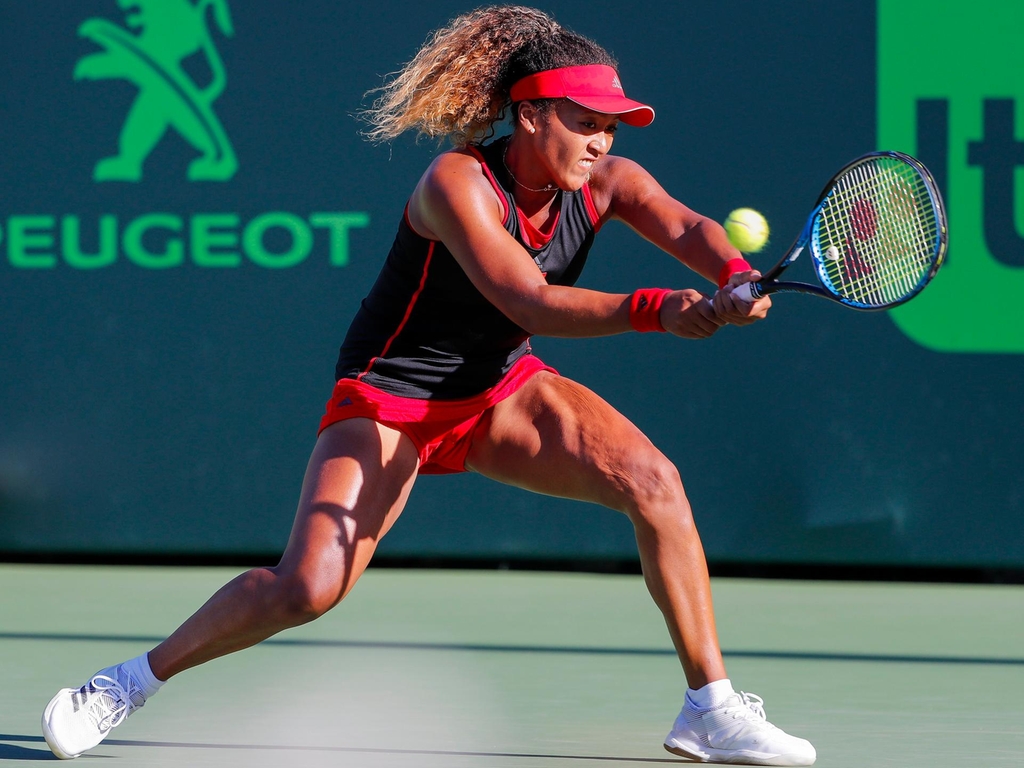World number two Naomi Osaka faces expulsion from the French Open and future Grand Slams if she continues to refuse to speak to the media, organisers said.
Japan’s Osaka said last week she will not give any news conferences during Roland Garros because she wants to protect her mental health.
She was fined $15,000 (£10,570) for not doing media after Sunday’s first-round win over Romania’s Patricia Maria Tig.
The second seed won 6-4 7-6 (7-4).

A joint statement from the four Grand Slam organisers said Osaka also faces “more substantial fines and future Grand Slam suspensions”.
Later on Sunday, Osaka tweeted “change makes people uncomfortable”.
The Grand Slams added that following Osaka’s announcement on Wednesday, Roland Garros teams asked the 23-year-old to reconsider her position and were unsuccessful in their attempts to check on her wellbeing.
After a “lack of engagement” from Osaka, the Grand Slam organisers wrote to her to offer support, as well as to “remind her of her obligations”.
“A core element of the Grand Slam regulations is the responsibility of the players to engage with the media, whatever the result of their match, a responsibility which players take for the benefit of the sport, the fans and for themselves,” the statement said.
“We have advised Naomi Osaka that should she continue to ignore her media obligations during the tournament, she would be exposing herself to possible further Code of Conduct infringement consequences.
“As might be expected, repeat violations attract tougher sanctions, including default from the tournament and the trigger of a major offence investigation that could lead to more substantial fines and future Grand Slam suspensions.”
It added that the rules exist “to ensure all players are treated exactly the same”.
How did it get to this point?
On Wednesday, Osaka released a statement saying she would not face the media during the course of the French Open, citing the impact of news conferences on the mental health of players.
She said expecting players to answer questions after a defeat amounted to “kicking a person while they’re down”.
“I’ve often felt that people have no regard for athletes’ mental health and this rings true whenever I see a press conference or partake in one,” she said in the statement, which she posted on social media.
“We’re often sat there and asked questions that we’ve been asked multiple times before or asked questions that bring doubt into our minds and I’m just not going to subject myself to people that doubt me.”
Grand Slam rules state players can be fined up to $20,000 (£14,160) for failing to meet their media obligations, with the Women’s Tennis Association (WTA) saying the players “have a responsibility to their sport and their fans” to speak to the media during competitions.
Many athletes, both in and out of tennis, applauded Osaka’s stance, though many accepted that speaking to the media is “part of the job”.
Following her win over Tig, Osaka did take part in the usual on-court interview with the victor.
“My movement on clay is a work in progress. If I keep playing more matches, hopefully it will get better,” she said.